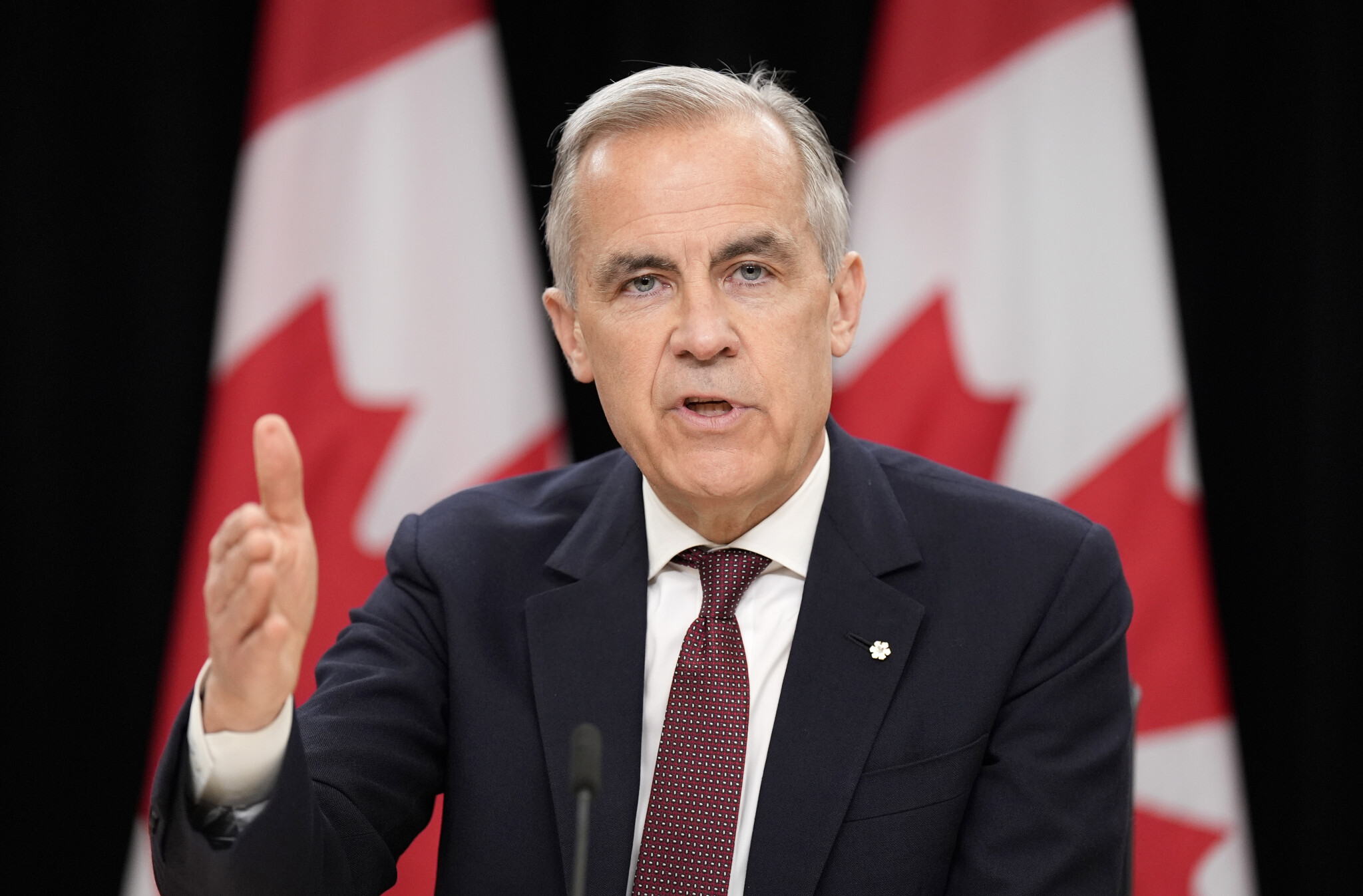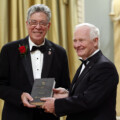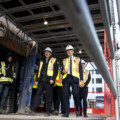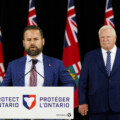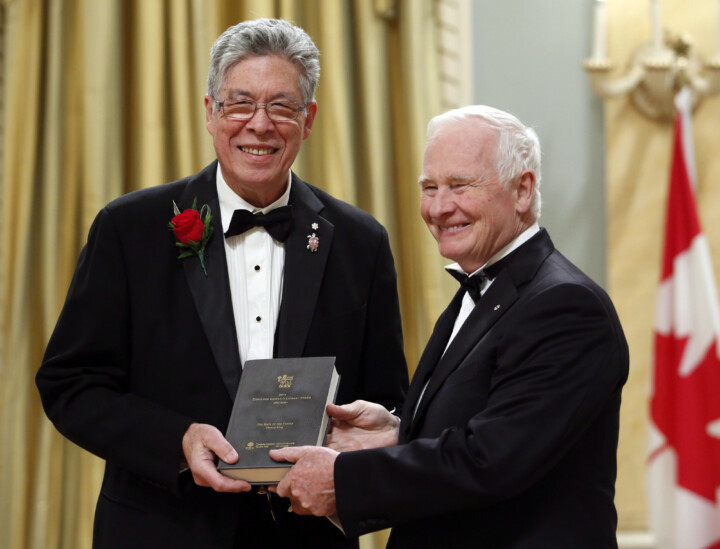As distance has grown since election day, our understanding of its results and the various fault lines they expose has become clearer. The Liberal Party may have once again won, but to think Canada has chosen continuity is to mistake the surface for the substance. What this election revealed—more than any party’s popularity or platform—is the accelerating collapse of a shared national experience.
There’s been a lot of talk about the differences across age, class, gender, and region—for good reason. But these different identities aren’t completely unrelated. They aggregate up into different distinct groups inhabiting parallel worlds under the same flag: the winners and the losers of the “lost decade.”
For the winners, the old promises more or less held. Work hard, get educated, buy a home, start a family. These Canadians—better educated, professional class workers who are overwhelmingly older, more established, more connected—have largely retained what they were told to expect from life. Many own property purchased before the housing market detached from gravity, and they continue to watch their wealth climb through passive appreciation. They enjoy stable careers, often with pensions. They trust institutions because those institutions have served them. They believe in the system because they are the system, or at least close enough to its inner workings to still benefit from its operation. While they may reside in Canada’s most expensive cities, they are less exposed to inflation, housing scarcity, or rent hikes.
And now, they can rest easy, content in the assurance that the man they put in power will enact their “Boomer economic agenda” and insulate them from the precarity they perceive to be besetting their comfortable Canada.
For the other group—younger, disillusioned, and increasingly voiceless—those promises have curdled into bitter irony. They were told to play by the rules: stay in school, take on debt, delay gratification. But the rewards never came. Instead, they came out of a pandemic period, where they disproportionately sacrificed themselves and entered an economy where degrees are ubiquitous but increasingly meaningless, housing is speculative fantasy, and work is precarious. They are not anti-establishment out of nihilism or laziness. They are anti-establishment because the establishment long ago made it clear: you are not invited in.
And when they express concern—whether over immigration, inflation, job scarcity, or the erosion of trust—they are often met not with engagement but with condescension. Their worries are “misinformed.” Their dissent, “reactionary.”
This, more than any economic indicator, is the true measure of the divide: the sense that one half of the country still speaks and is heard, while the other half must shout to be noticed, only to be scolded for raising its voice.
That disillusionment is not speculative—it is measurable. A 2024 Abacus Data survey found that over 25 percent of Canadians believe they now belong to a lower class than the one they were raised in. Among those aged 18 to 34, this sentiment is even more pronounced, reflecting a grim economic reality in which upward mobility is no longer just delayed—it feels like it is vanishing.

A food delivery worker rides an electric bike in downtown Vancouver, on Tuesday, January 12, 2021. Darryl Dyck/The Canadian Press.
The traditional pathways to prosperity—homeownership, stable employment, financial independence—are slipping out of reach. In Toronto, the average home now costs over $1.1 million, requiring a down payment exceeding $200,000. Unsurprisingly, only 26 percent of Canadians aged 18 to 34 own a home today, down sharply from 47 percent in 2021.
Immigration is a case in point. A 2024 Environics Institute survey revealed that 58 percent of Canadians believe immigration levels are too high—a view shaped by real concerns over housing, health-care access, and infrastructure strain. These aren’t abstract complaints, and they are not evenly distributed. The sharpest drop in support for immigration has occurred among Canadians aged 18 to 29—those most acutely impacted by the stress on services.
It is easy to speak of hope, unity, and moving forward. But one cannot move forward while leaving half the country behind—especially the half that increasingly sees no road ahead.
Mark Carney and his newly appointed cabinet have been handed a poisoned chalice, not because of who he is, but because of the conditions he now inherits. He stands atop a system that operates with mathematical precision for a select class, while scarcely functioning for the rest. If he governs only for the former—the bureaucrats, the urban professionals, the technocratic echo chambers of polite opinion, the “elbows up” elder Canadians—the latter will continue to drift not just away from the Liberal Party, but from faith in the entire Canadian project.
There is a quiet cruelty in telling people the game is fair when the score has already been settled. And yet, that is what we’ve done. We have told generations of young Canadians that credentials would equal security, that effort would equal mobility, and that trust in the system would be rewarded. And now, as they bear witness to spiraling costs, shuttered opportunities, and a politics that seems allergic to truth, they are told instead to be patient—or worse, to be grateful.
Gratitude cannot be summoned on command. It must be earned through legitimacy. And legitimacy cannot exist where people feel voiceless, disposable, or betrayed.
The great challenge of our time isn’t managing polarization. It’s restoring reciprocity—the feeling that if you follow the rules and do what’s expected of you, you will get something in return. Right now, millions of Canadians no longer believe that bargain exists. They see a political class fluent in empathy but silent on consequences. A media class obsessed with language but blind to reality. And a professional class that insists the system is working—because for them, it is.
This election will be remembered less for who won than for what it revealed. That there is a Canada still inside the walls—credentialed, comfortable, coherent—and a Canada outside, increasingly skeptical that the walls should stand at all. We must not confuse order with justice, or stability with fairness. One can have a functioning state apparatus and a hollowed-out national soul.
The Carney government’s task is thus rather fundamental. If it wants to overcome division and if it aims to restore the Canadian promise, it must challenge the comforts of the very class that nurtured the prime minister himself.
If he doesn’t, those Canadians for whom Canada is already broken will make his political life mirror the discomfort they’ve endured for far too long. There will be no honeymoon; Prime Minister Carney is already on the clock.
